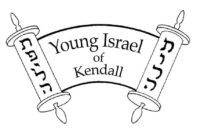WOW!!!
What makes for an outstanding person of virtue?
Rabbi Meir said:
Whoever is involved in Torah study for its own sake merits many things;
Not only that, but the creation of the entire world is worthwhile for his sake alone.
He is called, ‘Friend, Beloved.’
He loves the Omnipresent.
He loves His creatures.
He gladdens the Omnipresent.
He gladdens His creatures.
The Torah clothes him in humility and fear of Hashem.
It makes him fit to be a tzaddik, devout, straight and faithful.
It moves him away from sin and draws him near to merit.
People enjoy from him counsel, wisdom, understanding and strength…
The Torah gives him kingship, dominion and analytical judgment.
The secrets of the Torah are revealed to him.
He becomes like a steadily strengthening fountain and like an unceasing river.
He becomes modest, patient and forgiving of insult to himself.
The Torah makes him great and exalts him above all things.[1]
This mishnah describes the character of a remarkable individual. The source of his attributes is his devotion to Hashem and to Torah. His commitment is not due to his seeking reward or to avoid punishment. Rather it is for the sake of Heaven. He finds favor with Hashem and with people.
Such a person stands out in the crowd. He seems so perfect. Yet, if you look at the listing of all of his achievements, one seems to be out of place. He is “forgiving of insult to himself.” Really? Who would insult such a saintly individual?
Even the most righteous are subject to criticism. There will be people seeking to find fault. In some instances, the objective is not just to pull down, but even to destroy.
It seems hard to understand how people could brazen enough to endeavor to undermine a person who is notably of great virtue, yet it does occur. Zimri, a Jewish leader publicly committed an act of licentiousness. This was a desecration of Hashem which warranted decimation of Klal Yisrael. Pinchas was a hero who boldly stopped the violation and punished the offenders. He alone stood up for the honor of Hashem, thereby saving Klal Yisrael.
Yet, there were those who had a seemingly surprising reaction. Rather than expressing admiration and gratitude, they spoke shamefully of Pinchas. “Have you seen? Here is a person whose maternal grandfather brought offerings for idol worship, and he killed a prince of a tribe of Israel!”[2]
Pinchas had saved the day. That did not prevent some people from finding fault. It happens too frequently. It is a technique that is employed to undermine: lob dirt and insults with the hope that something will stick. Even the most righteous are not spared from such assaults.[3]
There is a popular saying: Where there is smoke, there is fire. That means that if people say things, there must be something to it. However, that’s not necessarily true.
Are we influenced by negative information that is hurled regarding others or are we discerning enough to recognize when it is the source which is tainted?
Shabbat Shalom,
Rabbi Hershel D. Becker
[1] Pirkei Avos 6:1
[2] Rashi Pinchas 25:11; Sanhedrin 82b
[3] U’lesitcha Elyon Pinchas 25:11; Divrei Yoel MiSatmar
